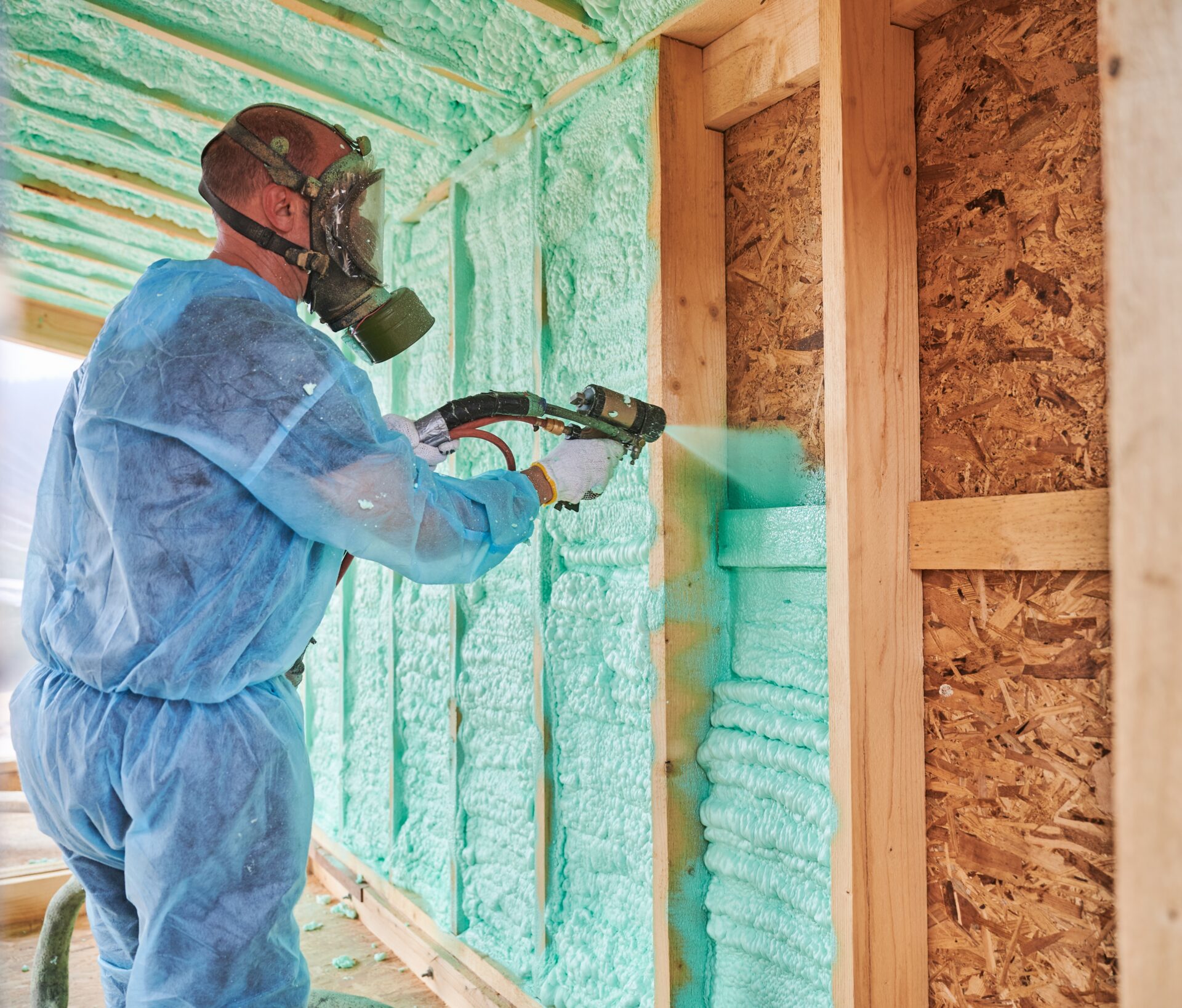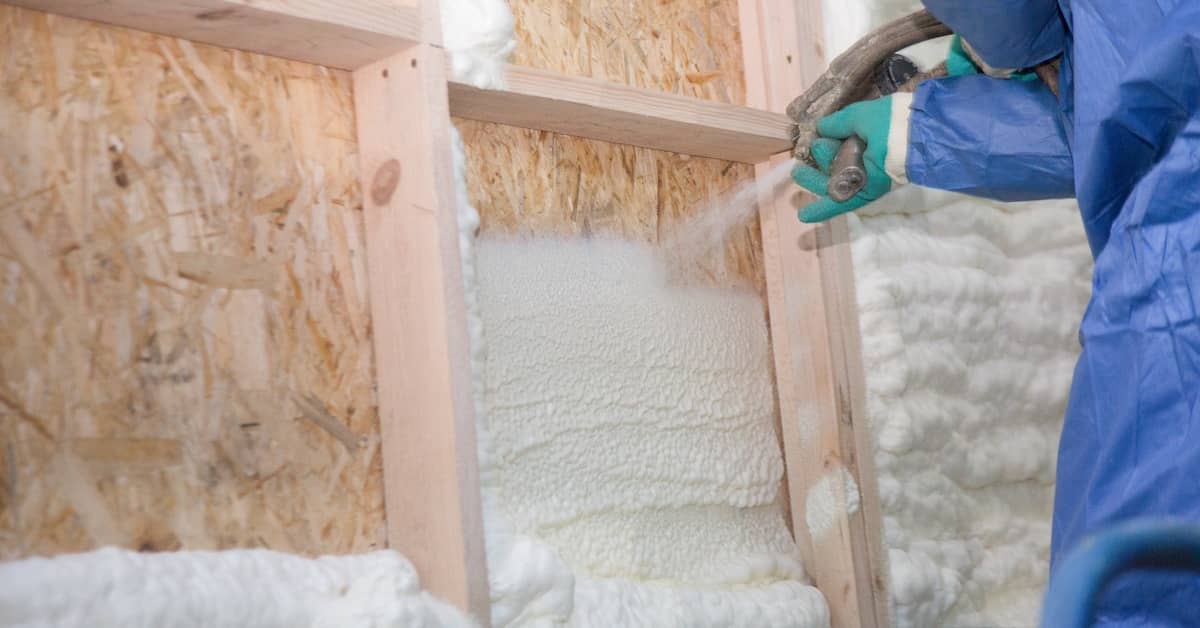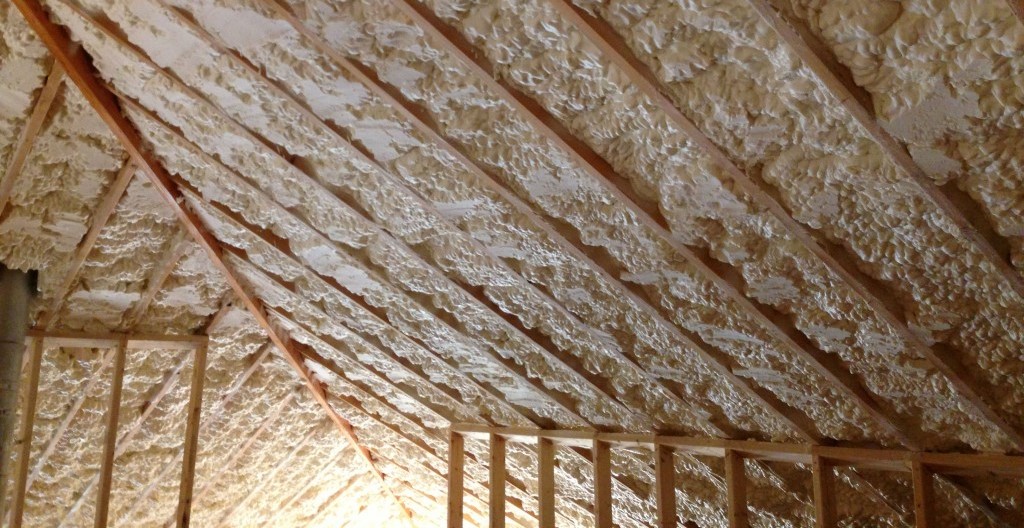When considering insulation options for your roof in Raleigh, North Carolina, understanding the benefits and drawbacks of various materials is crucial. Specifically, spray foam insulation presents a distinct advantage over traditional batt insulation, particularly for Raleigh's climate. This article explores why spray foam is often the superior choice, addressing the technical differences, performance benefits, and considerations you should be aware of before making your decision.
Core Differences Between Spray Foam and Traditional Batts
Spray foam insulation is gaining popularity due to its superior ability to seal gaps and provide an airtight barrier, compared to the more traditional batt insulation. Here are the key differences:
Feature
Spray Foam Insulation
Traditional Batt Insulation
Sealant Capability
Expands and fills gaps, creating an airtight seal
Does not expand, may leave gaps and air leaks
R-Value (Thermal Resistance)
Higher R-value per inch, providing better thermal performance
Lower R-value per inch, requiring more depth for similar performance
Moisture Resistance
Highly resistant to moisture, reducing mold and mildew risks
Susceptible to moisture absorption, leading to mold growth
Installation Process
Applied as liquid that expands and hardens
Pre-cut batts are installed between rafters or studs
Longevity
Long-lasting, typically more durable with fewer maintenance needs
May degrade over time, especially if exposed to moisture
As demonstrated, spray foam offers enhanced performance in sealing, thermal insulation, and moisture resistance. It’s especially beneficial in the humid climate of Raleigh, where moisture buildup is a common concern for homeowners.
Why Spray Foam is Ideal for Raleigh Roofs
Raleigh experiences a humid subtropical climate, characterized by hot, humid summers and mild winters. These conditions necessitate insulation that can handle moisture and air leakage. Here’s why spray foam is the preferred option for many:
Superior Insulation Performance
Spray foam offers a higher R-value per inch compared to traditional batt insulation. This means that spray foam can provide superior thermal insulation in a thinner layer, making it ideal for areas where space is limited. In the context of Raleigh’s summer heat, spray foam helps to keep homes cooler, reducing the demand on air conditioning systems.
Moisture and Mold Resistance
Raleigh's humid climate makes homes prone to moisture buildup, which can lead to mold and mildew growth. Traditional batt insulation can absorb moisture, leading to potential health risks and insulation degradation. Spray foam, on the other hand, is highly resistant to moisture, providing a continuous barrier against humidity and helping to maintain the structural integrity of the roof.
Air Sealing Capabilities
One of the primary advantages of spray foam is its ability to expand and form a seamless seal across all gaps, cracks, and crevices. This creates an airtight seal that prevents the loss of conditioned air and stops drafts. In Raleigh, where temperature fluctuations between seasons can be significant, reducing air infiltration is crucial for maintaining indoor comfort and energy efficiency.
Long-Term Durability
Spray foam insulation is known for its longevity. Unlike batt insulation, which can settle or deteriorate over time, spray foam retains its shape and insulating properties for many years. This durability translates into fewer repairs and replacements, offering long-term cost savings.

Things to Consider Before Making a Decision
Before installing spray foam insulation in your Raleigh home, it’s important to consider a few key factors:
Initial Installation Cost
While spray foam insulation generally offers more benefits than batt insulation, it can come with a higher initial installation cost. However, this cost is often offset over time through reduced energy bills and fewer maintenance requirements. If you’re planning to stay in your home for an extended period, the upfront investment in spray foam may prove worthwhile.
Professional Installation Required
Spray foam insulation requires professional installation to ensure proper application and effectiveness. Unlike batt insulation, which can be installed by homeowners with the right tools, spray foam must be sprayed in a specific manner to expand and seal effectively. This additional cost should be factored into your decision.
Environmental Considerations
Spray foam insulation has a higher environmental impact during production than traditional batt insulation. However, some newer types of spray foam are more eco-friendly, made from renewable resources and with a reduced carbon footprint. If sustainability is a primary concern, you may want to explore these eco-conscious options.

Technical Specifications of Spray Foam vs. Batts
For a clearer understanding, let’s compare the technical specifications of spray foam and batt insulation.
Specification
Spray Foam Insulation
Traditional Batt Insulation
R-Value per Inch
6.0 – 7.0
3.0 – 4.0
Moisture Resistance
Highly resistant
Susceptible to moisture absorption
Air Barrier
Excellent, airtight seal
Limited air barrier, gaps possible
Sound Absorption
Better soundproofing properties
Moderate sound absorption
Material Lifespan
Can last 30+ years with proper installation
10-20 years, dependent on material quality
Installation Time
1-2 days for a typical home
1-3 days, depending on complexity
This table highlights the stark differences in insulation performance and longevity. Spray foam not only offers better thermal resistance but also provides a longer-lasting solution to air and moisture concerns, especially in humid environments like Raleigh.
Common Questions About Spray Foam Insulation
How long does spray foam insulation last?
Spray foam insulation can last up to 30 years or more with proper installation. Its durability makes it a long-term investment compared to traditional batt insulation, which may need replacement every 10 to 20 years.
Is spray foam insulation better than batt insulation for energy efficiency?
Yes, spray foam insulation is generally more energy-efficient due to its higher R-value per inch and its ability to seal gaps, preventing air leaks. This results in better temperature control and lower energy bills.
Can I install spray foam insulation myself?
No, spray foam insulation requires professional installation. The application process involves spraying the foam, which then expands to create an airtight seal. Improper installation can lead to reduced effectiveness and potential structural damage.
Is spray foam insulation safe?
Yes, spray foam insulation is safe when installed by professionals using the correct safety measures. It is non-toxic and, once cured, does not pose health risks.
Make the Right Decision
In Raleigh’s humid climate, choosing the right insulation is essential for maintaining comfort and efficiency in your home. Spray foam insulation offers superior thermal performance, moisture resistance, and long-term durability compared to traditional batt insulation. While it may have a higher upfront cost, the long-term benefits often make it a more cost-effective choice. By evaluating factors like installation costs, environmental considerations, and your home's specific needs, you can make an informed decision that ensures comfort, energy efficiency, and durability for years to come.





Comments